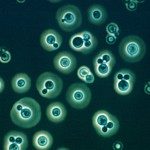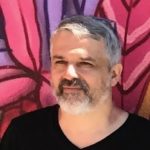Link to Pubmed [PMID] – 36294609
Link to DOI – 104410.3390/jof8101044
J Fungi (Basel) 2022 Oct; 8(10):
Pathogenic fungi require delicate gene regulation mechanisms to adapt to diverse living environments and escape host immune systems. Recent advances in sequencing technology have exposed the complexity of the fungal genome, thus allowing the gradual disentanglement of multiple layers of gene expression control. Alternative transcription start site (aTSS) usage, previously reported to be prominent in mammals and to play important roles in physiopathology, is also present in fungi to fine-tune gene expression. Depending on the alteration in their sequences, RNA isoforms arising from aTSSs acquire different characteristics that significantly alter their stability and translational capacity as well as the properties and biologic functions of the resulting proteins. Disrupted control of aTSS usage has been reported to severely impair growth, virulence, and the infectious capacity of pathogenic fungi. Here, we discuss principle concepts, mechanisms, and the functional implication of aTSS usage in fungi.


